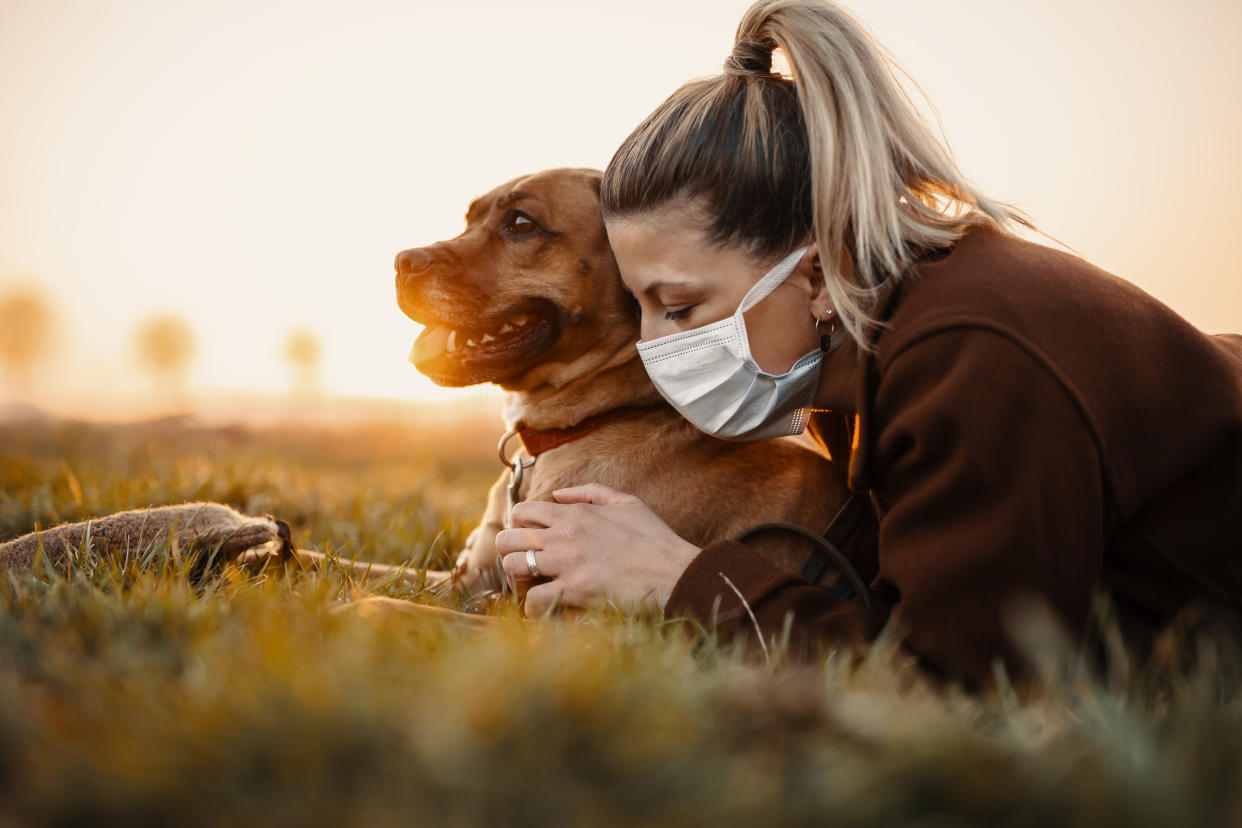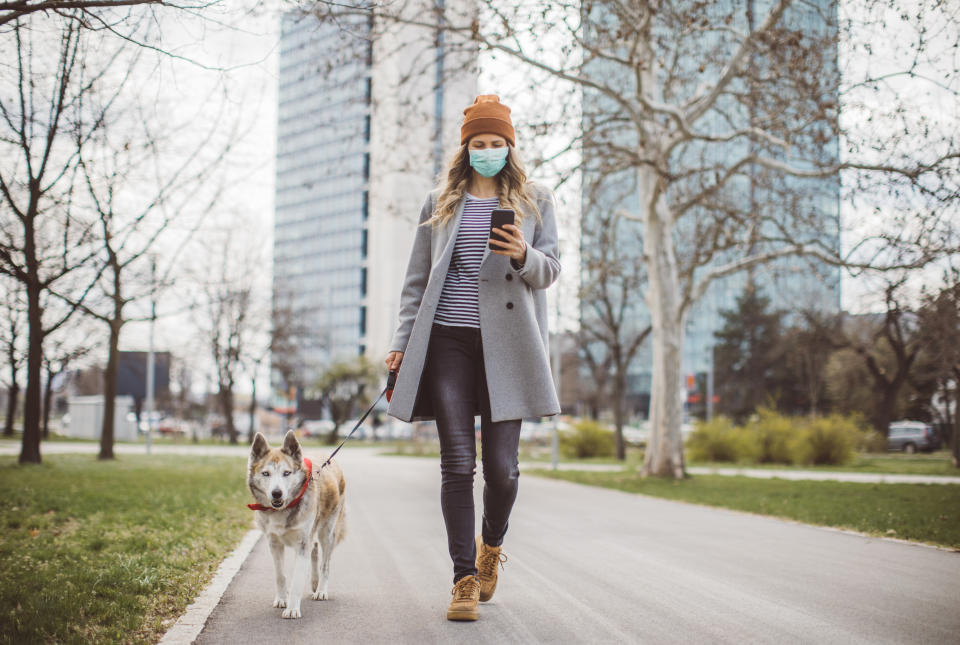Pets 'helped people cope emotionally' during coronavirus lockdown, study suggests

While dogs may be man’s best friend, new research suggests any type of pet “buffered against psychological stress” during the height of the coronavirus lockdown.
Scientists from the universities of York and Lincoln looked at 6,000 Britons, of whom nine in 10 (90%) had at least one furry friend.
Between 23 March – the day UK lockdown was enforced – and the gradual relaxation of restrictions on 1 June, more than 90% of the pet owners said their animal “helped them cope emotionally”.
The degree of comfort the participants received did not vary according to the species of their pet, with dog, cat and even fish owners finding reassurance in their domestic creature.
Read more: Coronavirus drug causes no heart complications despite concerns

“This work is particularly important at the current time as it indicates how having a companion animal in your home can buffer against some of the psychological stress associated with lockdown,” said study author Professor Daniel Mills from the University of Lincoln.
Just over two in five (41%) people in the UK own a pet. In the US, 67% of households – around 85 million families – have a furry friend.
The mental health consequences of the coronavirus outbreak were flagged early in the pandemic, with experts warning it could have a “profound” and “pervasive” impact on people’s emotional wellbeing.
It also came to light in May that half a million Britons were taking an online suicide prevention course.
Read more: Coronavirus cases doubling every seven to eight days in England
Studies have linked pets to everything from reduced blood pressure and cholesterol to improved socialisation and exercise.
To better understand how our furry friends may have helped during lockdown, the UK scientists analysed a group of volunteers between 23 March and 1 June.
Restrictions relaxed substantially in England from 1 June, with people being allowed to gather in groups of up to six in outdoor spaces, providing social distancing was in place.
Children in reception, year one, year six or nursery were also permitted to go back to school.
The beginning of June also saw more than two million vulnerable people who had been “shielding” being given the green light to meet loved ones.
Watch: Yahoo UK’s health correspondent Alexandra Thompson explain how coronavirus is treated
Results of the study – published in the journal PLOS One – revealed more than 90% of the pet owners found their animal helped them cope emotionally during the height of lockdown.
Despite Britons being allowed to leave the house for exercise, 96% said their pet helped them stay active.
“We also discovered that in this study, the strength of the emotional bond with pets did not statistically differ by animal species, meaning people in our sample felt on average as emotionally close to, for example, their guinea pig as they felt to their dog,” said lead author Dr Elena Ratschen from the University of York.
Read more: Coronavirus risk highest among cleaners in one NHS trust
The results also revealed more than two-thirds (68%) of the animal owners worried about their pets’ wellbeing during lockdown.
Concerns included who would look after their pet if they caught the coronavirus, as well as restrictions on veterinary care.
Employees in “veterinary medicines” essential to farming were listed as key workers during lockdown.
The Royal College of Veterinary Surgeons added: “Veterinary surgeons working in emergency care can also be considered key workers.
“This will not apply to every veterinary surgeon in clinical practice, and practices may need to consider rationalising their services to achieve this.”
Dr Ratschen said: “It will be important to ensure pet owners are appropriately supported in caring for their pet during the pandemic.”
Professor Mills stressed owners must continue to look after their animals, adding “our other work shows failing to meet these [needs] can have a detrimental effect for both people and their pets”.
The scientists also emphasised that despite their encouraging results, people should not buy a pet just to protect their mental health during the coronavirus outbreak.



